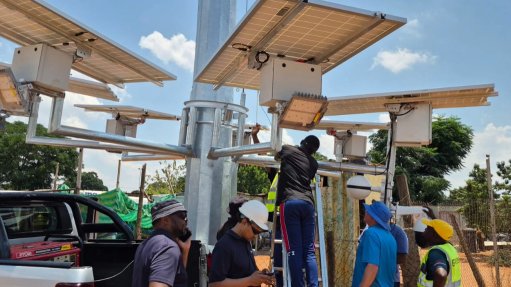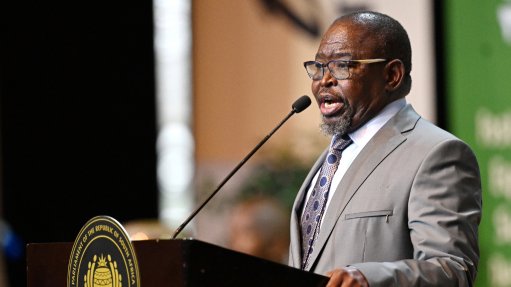BMW South Africa shares peek inside world-class PHEV assembly operations

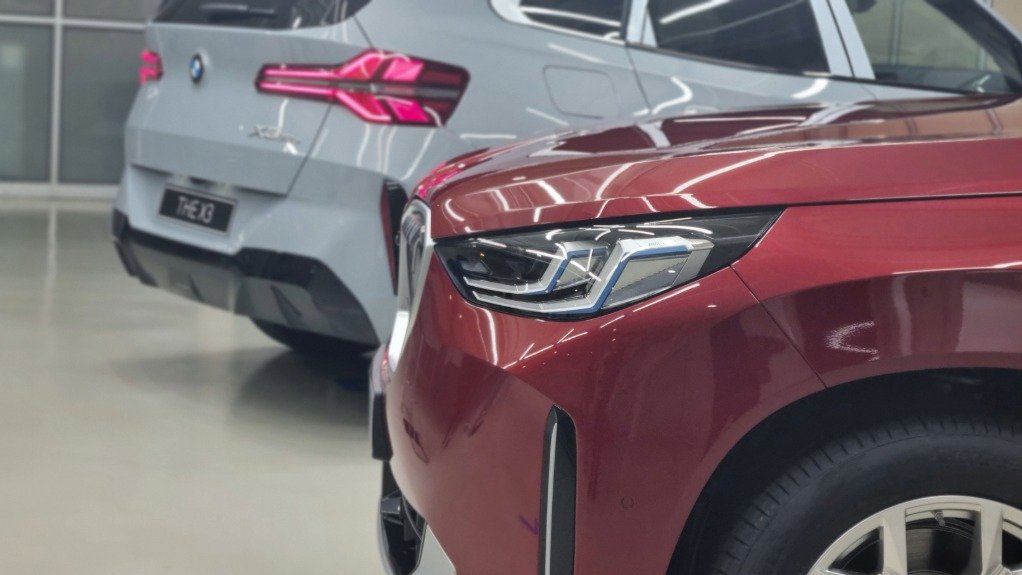
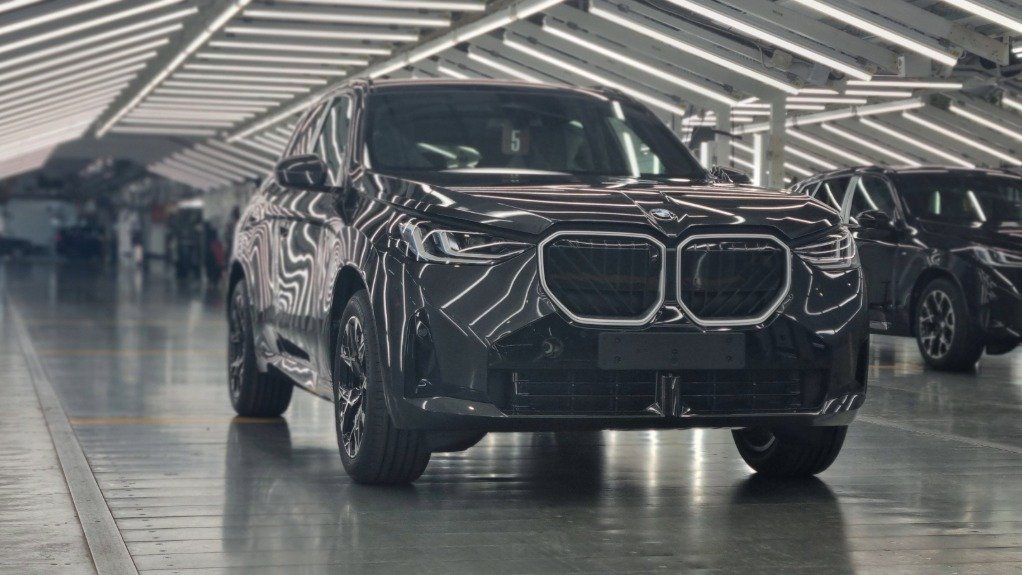
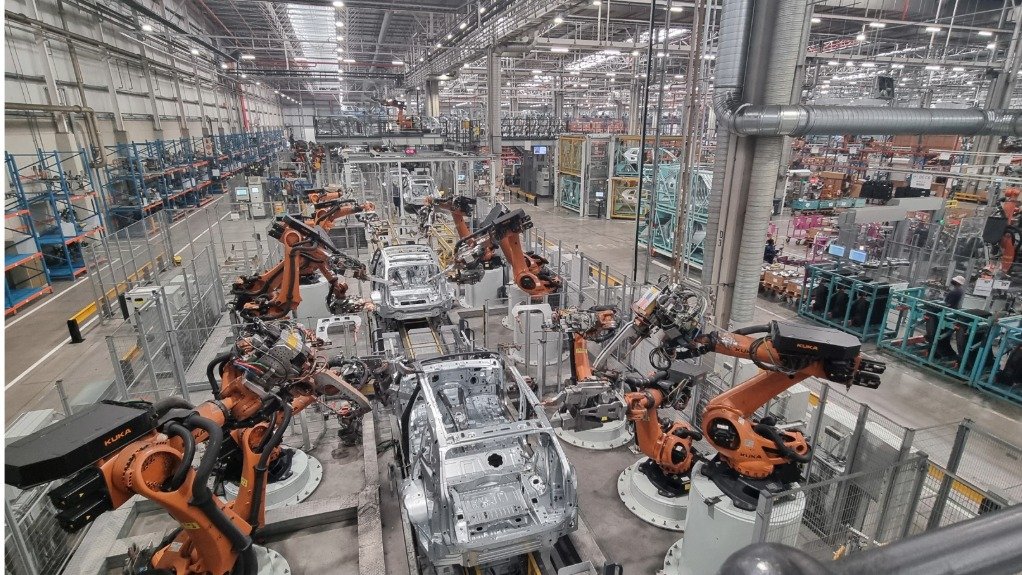
BMW X3
Photo by Creamer Media's Marleny Arnoldi
BMW X3
Photo by Creamer Media
BMW South Africa's Rosslyn plant
Photo by Creamer Media's Marleny Arnoldi
Having made adjustments worth R4.2-billion to its Rosslyn-based production plant to accommodate for plug-in hybrid electric vehicle (PHEV) manufacturing since October last year, automotive manufacturer BMW Group South Africa says local uptake of the X3 PHEV-variant has been strong, with the plant selling 10% of its PHEV production in South Africa.
In turn, the PHEV units make up nearly 50% of the plant’s production.
During an exclusive tour of the plant, BMW Group plant Rosslyn director Danny Bester told Engineering News the plant was made to be more flexible and adaptable to effectively respond to customer demands, particularly as the Rosslyn plant is the only X3 PHEV production facility globally.
The plant’s modular production technique allows for multiple models and drivetrains to be built in a single production line.
Bester pointed out that PHEV sales locally are much higher than that of full battery-electric vehicles, which shows the market’s preference for cleaner but longer-range vehicles.
BMW South Africa produces the fourth-generation X3 in internal combustion engine (ICE) and PHEV variants for the local and export markets, with a 55% local content rate.
The X3 was named South Africa’s 2025 Car of the Year, which helps reaffirm South Africa’s status as a global destination for automotive excellence. Notably, the BMW brand has won the most Car of the Year Awards in South Africa since the award’s inception in 1988.
In addition to manufacturing excellence, BMW South Africa continues to advance various socioeconomic upliftment initiatives, including through training and skills development.
Production of the X3 models start with the body shop, where several hundred individual parts made of steel and aluminium of different sizes are assembled to a precision body.
Depending on the vehicle requirements, carbon and fibre composite parts are also assembled to form a vehicle’s body structured.
The 26 000 m2 body shop has 342 robots performing this assembly work with maximum precision, including welding, joining, soldering, screwing, gluing and laser welding. The machines are controlled by about 316 highly-qualified technicians.
Next, the vehicles are cleaned and degreased in plunge pools before entering the paint shop. The vehicles are coated with a zinc phosphate layer, which forms the basis for lasting corrosion protection. Four more coats of paint protect the vehicles against environmental influences and provide a lasting colour gloss.
BMW South Africa is meticulous in checking paint quality after each production step, including through laboratory specialists who undertake environmental simulation of the vehicles to ensure colourfastness of all coatings, as well as resistance to environmental influences.
With the plant having introduced an integrated paint process in 2019, volatile organic compound emissions have reduced by almost 39 000 kg between 2019 and 2022. This while a new thermal afterburner oven has reduced these emissions by a further 50 000 kg, demonstrating BMW South Africa’s relentless pursuit of cleaner production.
Notably, the Rosslyn plant is among the first automotive plants globally to use matte paint made from biomass instead of crude oil. The paints used at Rosslyn are made from renewable raw materials such as biowaste, which reduces reliance on fossil fuels and lowers carbon emissions.
Bester told Engineering News that, given the water intensive nature of the paint shop, BMW South Africa has implemented various water conservation initiatives, with its wash bays using recycled water from the paint shop. Additionally, the sludge produced from the painting process are used to manufacture tiles, contributing to a zero-waste approach at the Rosslyn plant.
Moreover, BMW South Africa’s assembly line combines the drive unit of the engine, transmission, axles and exhaust system to the body before numerous tests are conducted to ensure vehicles are insulated from rain and wind.
Bester confirmed that BMW South Africa is reaching out to new markets given Europe’s acceleration away from ICE vehicles and owing to trade turmoil that is impacting automotive demand and supply globally.
Responding to a question of whether sub-Saharan Africa can serve as a battery manufacturing hub for the world, Bester expressed concern about the sheer scale required to be competitive with the likes of China.
He highlighted that such an endeavour would require massive investment and collaboration between the public and private sectors. He did not foresee South Africa or the Southern African region becoming a significant producer of batteries or battery components any time soon.
Bester concluded that BMW South Africa remained committed to delivering premium vehicles across a wide drivetrain spectrum in the country and for the global market, backed by solid environment, social and governance efforts.
Article Enquiry
Email Article
Save Article
Feedback
To advertise email advertising@creamermedia.co.za or click here
Press Office
Announcements
What's On
Subscribe to improve your user experience...
Option 1 (equivalent of R125 a month):
Receive a weekly copy of Creamer Media's Engineering News & Mining Weekly magazine
(print copy for those in South Africa and e-magazine for those outside of South Africa)
Receive daily email newsletters
Access to full search results
Access archive of magazine back copies
Access to Projects in Progress
Access to ONE Research Report of your choice in PDF format
Option 2 (equivalent of R375 a month):
All benefits from Option 1
PLUS
Access to Creamer Media's Research Channel Africa for ALL Research Reports, in PDF format, on various industrial and mining sectors
including Electricity; Water; Energy Transition; Hydrogen; Roads, Rail and Ports; Coal; Gold; Platinum; Battery Metals; etc.
Already a subscriber?
Forgotten your password?
Receive weekly copy of Creamer Media's Engineering News & Mining Weekly magazine (print copy for those in South Africa and e-magazine for those outside of South Africa)
➕
Recieve daily email newsletters
➕
Access to full search results
➕
Access archive of magazine back copies
➕
Access to Projects in Progress
➕
Access to ONE Research Report of your choice in PDF format
RESEARCH CHANNEL AFRICA
R4500 (equivalent of R375 a month)
SUBSCRIBEAll benefits from Option 1
➕
Access to Creamer Media's Research Channel Africa for ALL Research Reports on various industrial and mining sectors, in PDF format, including on:
Electricity
➕
Water
➕
Energy Transition
➕
Hydrogen
➕
Roads, Rail and Ports
➕
Coal
➕
Gold
➕
Platinum
➕
Battery Metals
➕
etc.
Receive all benefits from Option 1 or Option 2 delivered to numerous people at your company
➕
Multiple User names and Passwords for simultaneous log-ins
➕
Intranet integration access to all in your organisation












